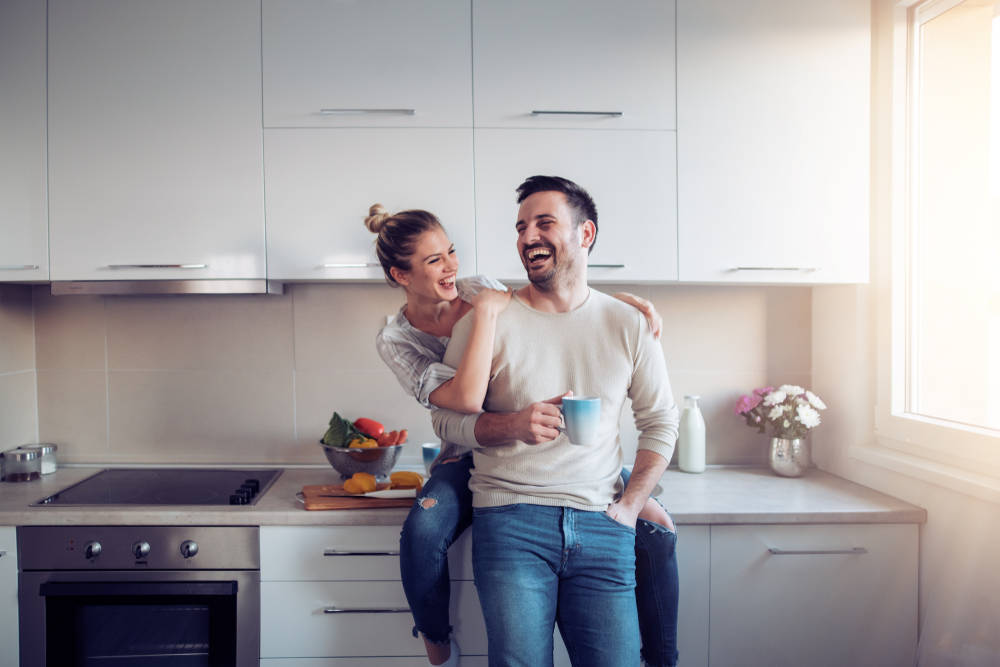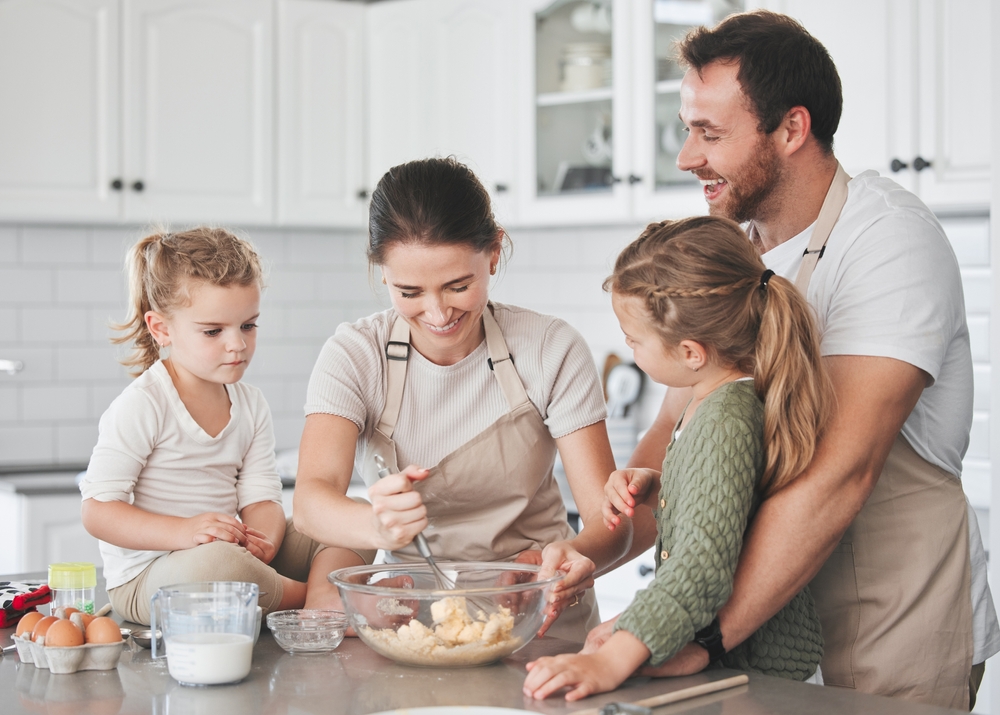Is a Flat Pack Kitchen Worth It, or Should You Go Custom?
August 1, 2025
Renovating your kitchen on the Central Coast? One of the first big decisions is choosing between a flat pack or a custom-designed kitchen. Both options offer distinct benefits, and knowing which suits your budget, lifestyle, and renovation goals is key to a successful outcome. At Central Coast Kitchens & Bathrooms, we’ve helped countless locals weigh up convenience against custom craftsmanship and affordability against flexibility. In this guide, we’ll break down exactly what you’re getting with flat pack versus custom kitchens, like cost, materials, design freedom, and everything in between.
Whether you’re a hands-on DIYer or after a kitchen that’s built to your exact vision, we’ll help you decide which option truly fits your home. Let's get started!

When embarking on a kitchen renovation journey, one of the first and most crucial decisions you’ll face is choosing between a flat pack kitchen and a custom kitchen. Each option has its own set of benefits and considerations, and understanding these can help you make an informed decision tailored to your lifestyle and budget. Here, we delve into the workings, inclusions, and distinct advantages of flat pack and custom kitchens.
Flat pack kitchens, often synonymous with DIY solutions, offer an accessible entry point into kitchen renovations in Central Coast. They are pre-manufactured kitchen components that are packaged flat and ready for assembly. This type of kitchen is appealing for homeowners looking to minimise costs and exert some DIY effort. Flat pack kitchens typically include:
Assembly and Installation
Flat pack kitchens are designed for ease of assembly. They include pre-cut, pre-drilled components like cabinets, drawers, and sometimes benchtops. They’re fairly user-friendly but do need some tools and a little patience to put together. Some choose to hire professional installers to ensure a perfect fit, which can add to the cost but reduce the hassle of DIY mistakes.
Flat pack kitchens come in a range of standard sizes and designs. This makes them a viable option for many homes but may limit their adaptability to unique spaces. Because the modules are pre-designed, you have less layout flexibility, though many brands still offer a good range of styles and finishes.
The materials used in flat pack kitchens are typically medium-density fibreboard (MDF) or particleboard with a laminate finish. While these materials are durable and offer good value for money, they may not match the longevity or premium feel of solid wood or other high-end materials available in custom kitchens.
Custom kitchens are the epitome of personalisation and quality craftsmanship. They’re built specifically for your space and tailored to your design and storage needs. Here’s what sets custom kitchens apart:
What really sets a custom kitchen apart is the personalised design. Unlike flat pack kitchens, custom kitchens are built to fit the exact dimensions of your space, allowing for complete freedom in layout and design. You can include custom cabinetry, clever storage, and high-end appliances, all tailored to your layout.
Custom kitchens often use superior materials, offering a wider range of options, including solid woods, stone benchtops, and premium finishes. This not only enhances the kitchen’s appearance but also its durability and lifespan. The ability to choose high-quality materials ensures a kitchen that will stand the test of time functionally and aesthetically.
With custom kitchens, the sky is the limit for creativity and innovation. Whether you’re after a modern, traditional, or eclectic look, the design is built around your style. This flexibility extends to every aspect of the kitchen, from the cabinetry and benchtops to the hardware and lighting.
While custom kitchens come with a higher price tag, they are seen as an investment. The quality of materials and the bespoke nature of the design can add value to your home. For those planning to stay in their homes for many years or looking to increase resale value, a custom kitchen can be a worthwhile investment.
It all comes down to what you’re willing to prioritise, whether budget, time, or customisation. Each option offers a different blend of convenience, quality, and control. Below, we break down the key pros and cons to help you see the full picture before making your decision.
Flat pack kitchens have become a go-to for many homeowners looking for budget-friendly and time-efficient solutions. Whether you're renovating a rental property or refreshing your forever home, they offer a quick way to modernise without the long wait.
Despite their convenience, flat pack kitchens aren’t without limitations. Not every layout or home is suited to a one-size-fits-most approach, and even confident DIYers may run into a few hurdles.
For those wanting a kitchen that’s tailored, timeless, and built to last, custom kitchens are often worth the upfront investment. Designed with your lifestyle and layout in mind, they offer creative freedom and standout quality.
With all their benefits, custom kitchens do come with some considerations, especially when it comes to time and cost.

In a kitchen renovation, one of the decisions you'll face is whether to opt for a flat pack kitchen or invest in a custom-designed one. Both choices come with their distinct advantages, challenges, and considerations that align differently based on your budget, skills, and lifestyle needs. Below, we discuss how to match your kitchen type to your specific circumstances and when each option might be the smarter move.
Flat pack kitchens generally offer a more cost-effective solution. They are mass-produced and allow for savings, particularly if you are willing to do some DIY assembly and installation. However, if your budget allows for greater flexibility, a custom kitchen can provide tailored solutions that maximise your space and reflect your personal style. Their higher price reflects the premium materials and expert labour involved.
Consider your own skills and willingness to engage in a DIY project. Flat pack kitchens are designed for ease of assembly, making them an attractive option for the handy homeowner. They come with clear instructions and often require only basic tools. If you enjoy DIY and have the time, building a flat pack kitchen can be a satisfying project. On the other hand, a custom kitchen typically requires professional installation, involving carpenters, designers, and possibly electricians and plumbers, which is ideal if you prefer a hands-off approach.
Your lifestyle and how you use your kitchen should also influence your decision. Flat pack kitchens can be ideal for those who need a quick, efficient upgrade or for properties intended for rental or resale, where functionality and cost-effectiveness are key. However, if your kitchen is the heart of your home, used frequently for entertaining or family gatherings, or if you have specific needs or desires such as integrated appliances or unique storage solutions, a custom kitchen may better serve your lifestyle.
Flat pack kitchens are often the smarter move for those on a tighter budget, who possess the skills or desire for a DIY project, or who need a quick renovation solution. They are advantageous in the following scenarios:
Investing in a custom kitchen becomes worthwhile when the following conditions are met:
Choosing between a flat pack and a custom kitchen comes down to balancing cost, convenience, and creativity. Flat packs are great for quick, budget-friendly upgrades, while custom kitchens offer tailored design and lasting value. If you’re planning a kitchen renovation on the Central Coast, get in touch with Central Coast Kitchens & Bathrooms, and we’ll help you find the perfect fit for your space, style, and budget.